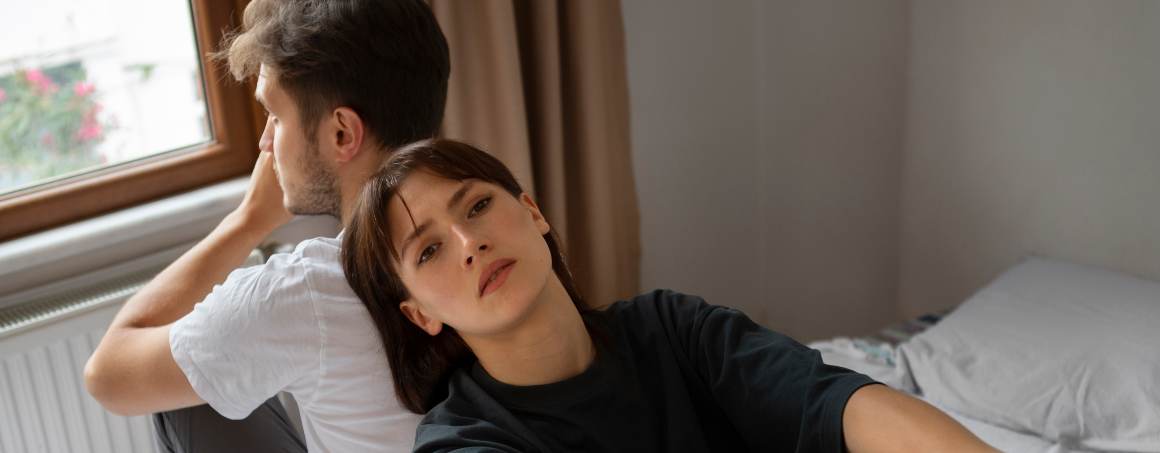
Latest news | Page 34
-
Why Do I Have No Sex Drive?
October 11, 2023
A variety of factors including hormones, chronic health conditions, prescription medications, poor body image, stress, depression, fatigue, relationship conflict, and lack of intimacy can dampen sexual desire. Low libido often improves through lifestyle changes like better sleep, exercise, nutrition, stress management, and couple's counseling. If self-help is ineffective, doctors can check hormones, refer to specialists, and consider medications or hormone therapy in applicable cases to help regain satisfying sex drive and intimacy.
-
At What Age Does Sex Drive Slow Down?
October 11, 2023
Libido, or sex drive, tends to peak in the late teens and 20s when hormone levels are optimal. It then decreases gradually as people age due to falling testosterone and estrogen. But factors like chronic health problems, medications, stress, poor body image, and relationship issues also contribute to declining libido, especially for women during menopause and men over 60. However, couples can maintain satisfying intimacy through open communication, flexibility, and focusing on emotional connection.
-
How Often Do Single People Have Sex?
October 11, 2023
Research shows that single men have sex about 1.3 times per week in their 30s, dropping to 0.6 times weekly over 50. Single women average 0.5 times per week in their 30s, further declining after 40. Frequency is affected by many factors like health, attitudes about sex, and opportunity. Couples have sex much more regularly - around 1.5 times weekly. Though singles have less sex, they can improve frequency by making intimacy a priority and minimizing barriers.
-
How Often Should I Have Sex?
October 11, 2023
While the average couple has sex around once weekly, every relationship's optimal sexual frequency varies based on age, health, stress, moods, and changing life seasons. The key is honest communication between partners. Mismatched libidos take compromise through scheduling, variety, and non-intercourse intimacy. Most importantly, prioritize emotional connection in and out of the bedroom.
-
What is a Normal Sex Drive?
October 11, 2023
Sex drive is influenced by many biological, psychological and social factors. There is no single "normal" level of desire. The main markers of a healthy libido are lack of distress, compatibility with your partner, and alignment with personal values. If you experience sexual issues or relationship conflicts over mismatched desire, compassionate counseling and medical help is available.
-
What affects libido the most?
October 11, 2023
Libido is affected by hormones, chronic diseases, mental health, sleep quality, and lifestyle habits. Low testosterone, menopause, diabetes, depression, sleep deprivation, obesity, smoking, and drinking alcohol negatively impact sex drive. Adopting healthy lifestyle measures like exercise, nutritious eating, stress relief techniques, and good sleep hygiene can enhance libido by balancing hormones, aiding weight loss, improving self-esteem, and optimizing energy.
-
What hormone causes horniness?
October 11, 2023
Testosterone is the primary sex hormone that controls libido and arousal. It is produced in the testes and regulated by the brain. Testosterone levels naturally decline as men age. Low T causes decreased sex drive. However, lifestyle factors like exercise, diet, sleep and stress also impact libido. So do health conditions, medications and relationship happiness. Addressing all these factors can help restore satisfaction with your sex life.
-
How Do I Know If I Have a Low Libido as a Woman?
October 11, 2023
Low female libido refers to a persistent decrease in sex drive that causes distress. It can be caused by hormonal changes, chronic health conditions, medications, mental health disorders, relationship conflict, and stress. There are various medical and lifestyle solutions available to treat low sex drive in women, such as hormone therapy, treating underlying health issues, improving diet, managing stress, and boosting intimacy.















